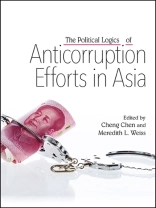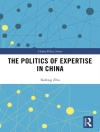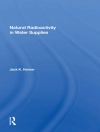Focusing on Northeast and Southeast Asia—regions notable for political diversity, difficult environments for fighting corruption, and multifarious anticorruption outcomes—this book examines the political dynamics behind anticorruption efforts there. The contributors present case studies of the Philippines, Indonesia, Taiwan, Vietnam, Thailand, South Korea, and China that explore the varying roles anticorruption efforts play in solidifying or disputing democratic and nondemocratic institutions and legitimacy, as well as the broader political and economic contexts that gave rise to these efforts. Whether motivated by private interests, party loyalty, or political institutionalization, political actors shape the trajectories of anticorruption efforts by challenging their opponents over what constitutes corruption, what enables corruption, and how to combat corruption. Arguing that anticorruption strategy may be associated more closely with shifting bases of regime legitimacy than with regime type, the book sheds light on the divergent ways in which states control and respond to political elites and society at large, and on how citizens from across strata understand and engage with their states.
Cuprins
List of Illustrations
Acknowledgments
Introduction: Theorizing Anticorruption as a Political Project
Cheng Chen and
Meredith L. Weiss
Part I. Anticorruption Driven by Private Interests
1. Anticorruption Campaigns, Regime Change, and the Proprietary Polity: The Philippine Case 23
Antoinette R. Raquiza
2. Fighting Corruption When Corruption Is Pervasive: The Case of Indonesia 49
Edward Aspinall
Part II. Anticorruption Driven by Party Loyalty
3. (Anti-)Corruption and Partisan Bias in Taiwan’s Newspapers
Christian Goebel
4. Rust Removal: Why Vietnam’s Historical Anticorruption Efforts Failed to Deliver Results, and What That Implies for the Current Campaign
Edmund Malesky and
Ngoc Phan
Part III. Anticorruption Driven by Political Institutionalization
5. Anticorruption Politics in Thailand: From Regime Institutionalization to Sovereignty Wars
Michael K. Connors
6. Korea’s Anticorruption Struggles: Fighting against Networks
Ray Dongryul Kim
7. The Evolution of China’s Anticorruption Strategy
Andrew Wedeman
Conclusion: The Comparative Study of Anticorruption Campaigns: Where Do We Go from Here?
Rudra Sil
Contributors
Index
Despre autor
Cheng Chen is Professor of Political Science at the University at Albany, State University of New York. Her books include
The Return of Ideology: The Search for Regime Identities in Postcommunist Russia and China and
The Prospects for Liberal Nationalism in Post-Leninist States.
Meredith L. Weiss is Professor of Political Science at the University at Albany, State University of New York. Her many books include
Student Activism in Malaysia: Crucible, Mirror, Sideshow and
Protest and Possibilities: Civil Society and Coalitions for Political Change in Malaysia.












